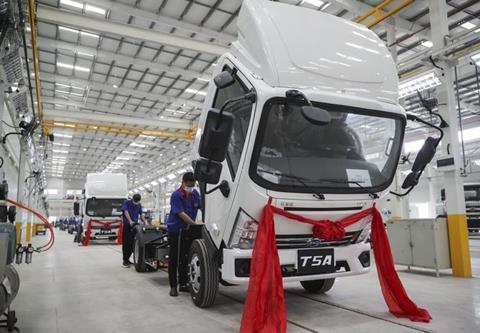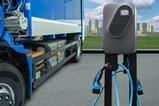China’s BYD is understood to be planning a big push into battery-electric commercial vehicles, with plans to introduce new models in markets including China, Europe, and Japan over the next three years.

As reported by The Wall Street Journal, BYD has mapped out a budget of over $20 billion for its commercial-vehicle unit over the next two years, with significant investments planned for research, product development, and production capacity expansion. This move is part of an emerging shift in the industry’s thinking about next-generation trucks. BYD believes its in-house blade battery can address the weight issue associated with battery electric trucks.
BYD is known for its passenger cars, where it competes with Tesla for global leadership and is fast-growing outside of China, and has recently announced the launch of the ATTO 3 electric passenger car in the UK. Until this year, its commercial-vehicle business mostly consisted of buses. However, in the first two months of 2023, BYD sold a combined 2,774 commercial vehicles other than buses, more than ten times the figure in the same period a year earlier. The company’s website shows a range of commercial vehicles, including delivery vans, freight trucks, cement mixers, and street sweepers.
The move to expand in commercial vehicles could help BYD counteract potentially slower growth in sales of passenger EVs. China, the world’s largest EV market, has ended subsidies to help consumers buy EVs. Those subsidies helped electric and plug-in hybrid cars grow to make up 26% of new passenger-car registrations in China in 2022, up from 6% two years earlier. ING Group expects that share to grow just slightly this year to 27.5%. Meanwhile, BYD expects commercial-vehicle sales to recover in China after the country ended strict Covid-19 curbs that had squeezed public transport and commercial activity.
BYD, whose shareholders include Warren Buffett’s Berkshire Hathaway, also has its eye on global markets. It operates commercial-vehicle factories in countries including Brazil, Hungary, and India in addition to several plants in China. Despite the competition from existing market players in Europe, BYD is well-positioned to enter overseas markets, thanks to China’s large and fairly well-developed market, which gives Chinese companies an advantage in terms of costs.
Overall, China shipped around 28,000 battery-electric trucks abroad last year, more than five times what it exported in 2021, according to the China Passenger Car Association.


















